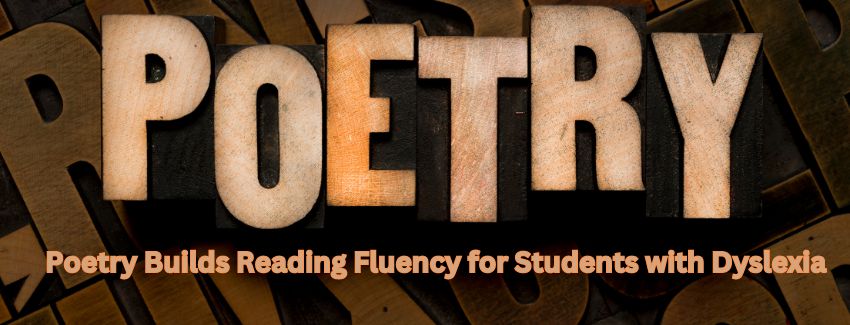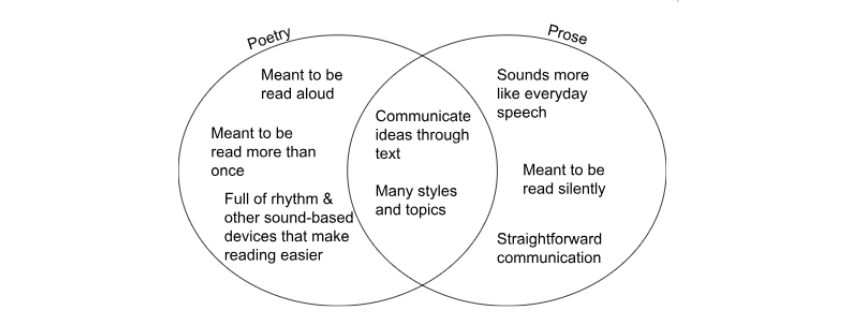Poetry Builds Reading Fluency for Students with Dyslexia
Sep 20, 2024

At first glance, it may seem like dyslexia and poetry just don’t mix! But if we pull back the curtain, we reveal that poetry offers many gifts to a dyslexic reader-to-be. Poetry, shall I compare thee to a summer’s day prose?

Before history (or the stories about what happened in a community) was recorded in writing, it was preserved orally. Oral history is done best through poems! Why? The devices poetry employs lend to memorization, and before writing, storytellers had to remember stories somehow. The Iliad and the Odyssey, as well as other ancient civilizations’ oldest stories, were spoken and performed in verse long before they were written down. The performers needed poetic elements like rhythm, meter, rhyme, alliteration, acrostic, and more, to recall the sequence of events. Not to mention, it sounded appealing to their audiences.
Teachers can use poetry to help dyslexic students unlock important pillars of reading including prosody, or “reading with expression,” and fluency, the ability to read with automaticity and comprehension. Because a poem is meant to be read multiple times, students get an authentic reason to do the “deep reading” practice we know is necessary to build fluency. Additionally, since poems are meant to be performed, students have a reason to do this repeated reading! Performing for an audience is motivating, and the act of rehearsal allows students to reach the point of automaticity with each word enabling them to start thinking about bringing the poem to life. Our students can struggle with expression when decoding each word of a typical grade-level text presents such a challenge. But with poetry, students can start to focus on which word in a line matters most and how to add extra emphasis to that word, or how to put a pause in just the right place to give the audience a moment to reflect. As renowned literacy researcher Tim Risinski puts it, reading with expression “adds to the meaning of the text.” Our students can get to this level when they work with poetry.
The components of reading don’t exist in isolation. When one can read with expression, one can comprehend more accurately. When one is comprehending, one is able to read with more expression, which impacts reading fluency. When one is flowing, one is more able to comprehend. Working with poetry affords students who normally struggle with reading the opportunity to advance their reading capabilities and develop more love for reading along the way.
Horizon Academy students are becoming poetry lovers themselves! The students in Triad 2 are currently rehearsing for an upcoming “Poetry Slam,” where they will perform poems they have chosen or even written themselves. Triad 2 teachers have called in the language team (SLPs, Director of Therapeutic Language & Literacy, and Director of Writing Intervention) to help coach the students one-on-one or two-on-one. The coaches are helping students slow down, use pauses effectively, pair their words with actions that add humor or emotion, and add expression to their reading using their faces and voices. It is amazing to see how much these students can improve in just a little time. In a school designed for students with language-based learning disabilities and led by faculty who make language fun, students with dyslexia thrive with poetry and move us with their grit, passion, and wisdom.
Gabi Guillory Welsh
Director of Language and Literacy at Horizon Academy
Horizon Academy empowers students with dyslexia and other language-based learning disorders to be effective learners and confident self-advocates.
